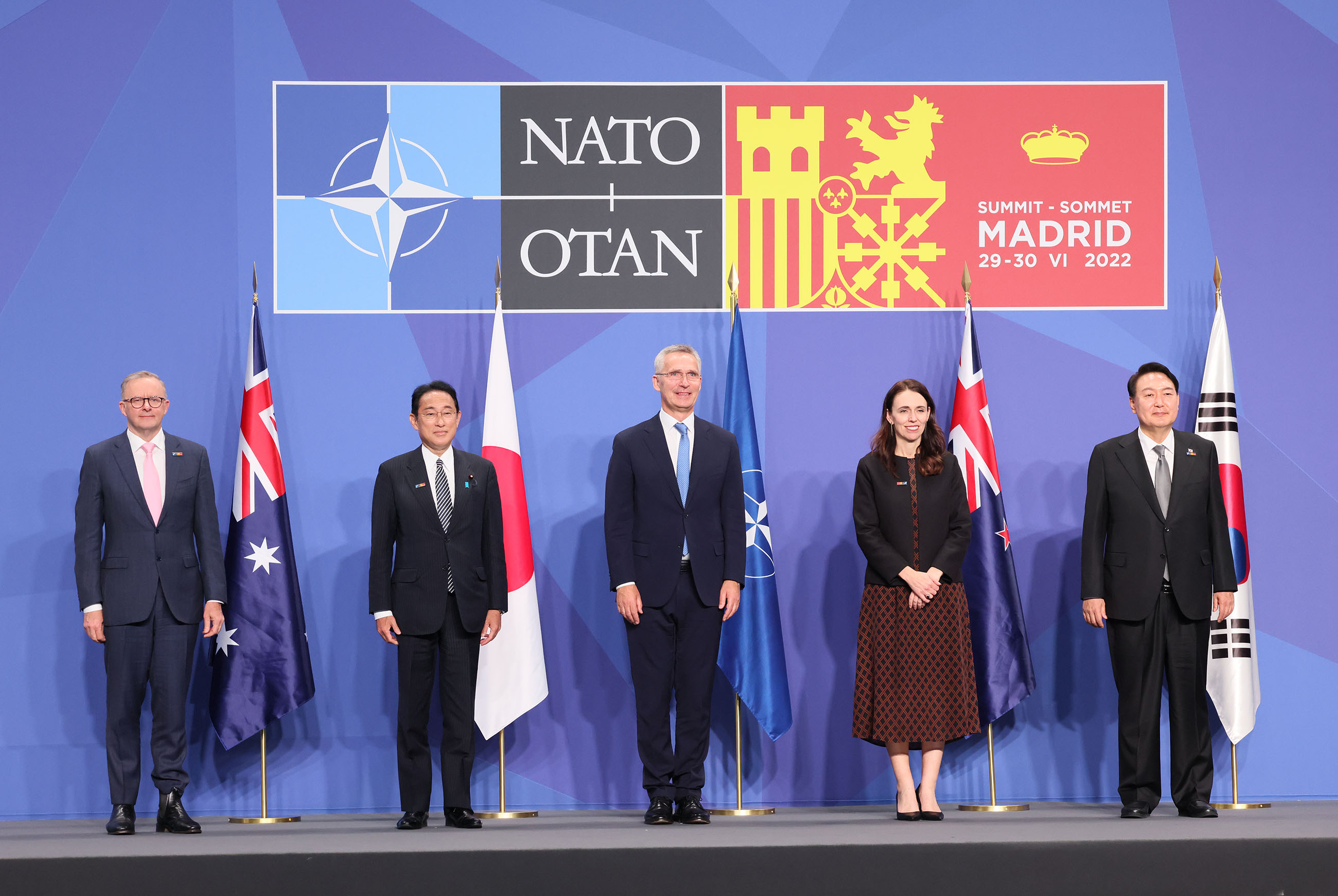By Chen Yang

“NATO has constantly strengthened ties with Asia-Pacific countries. What is it really up to? This calls for high vigilance in the international community, in particular Asia-Pacific countries. East Asia is one of the most peaceful and stable regions in the world and a promising land for cooperation and development, not an arena for geopolitical contest.” Chinese Foreign Ministry’s spokesperson Zhao Lijian made this statement at the regular press conference on November 7 when answering a question regarding Japan’s official joining of NATO’s cyber defense center.
The full name of the cyber defense center that Japan has joined is NATO Cooperative Cyber Defense Centre of Excellence (CCDCOE), an international military organization founded in May 2008 in Tallinn, capital of Estonia. It is tasked with strengthening cooperation and intelligence sharing among NATO and its members and partners in the cyber defense domain through training, R&D, exercise, and other approaches.
Japan thinks joining the CCDCOE means that its cybersecurity capability is “certified” by NATO and can be further enhanced through cooperation with the center. That will give it an excuse to scale up its cyber force and increase fiscal input in it, expand the JSDF in “grey zones”, and consequently break through the Pacifist Constitution. From NATO’s perspective, accepting Japan and ROK, which also joined the cyber defense center not long ago, into CCDCOE will give it more access to Asia, and may change its position as a European organization by turning it into a military alliance spanning the Eurasian continent.
Officially joining CCDCOE is a new development of Japan’s recent collusion with NATO. Japan has had little interaction with NATO after WWII due to geographical and other reasons, but things began to change after the Ukraine crisis broke out in February.
First, Japanese Prime Minister Fumio Kishida had a meeting with NATO Secretary General Jens Stoltenberg in March 2022, in which the Japanese leader expressed the willingness to strengthen the cooperation with NATO and jointly sanction Russia. Then Japanese foreign minister Yoshimasa Hayashi and Chief of Staff of JSDF Koji Yamazaki respectively attended a meeting of NATO foreign ministers in April and a meeting of the NATO Military Committee in May. Then in June, JSDF ships had a joint training with the Standing NATO Maritime Groups in the Mediterranean Sea, and Chair of NATO Military Committee Admiral Rob Bauer visited Japan. Fumio Kishida also attended the NATO summit in June, becoming the first Japanese prime minister ever to do so.
Moreover, officials in Japan’s Liberal Democratic Party and the Kishida administration have been calling for increasing the country’s defense budget to more than 2% of GDP in reference to the NATO standard. Although joining the CCDCOE doesn’t equal accession to NATO, it nevertheless released the negative signal that the Japan-NATO collusion is growing in depth and substance.
Japan is an Asian country where the phantom of militarism is still hovering, and NATO is the world’s largest military organization. Their collusion doesn’t bode well for the peace and stability of the Asian Pacific region. In recent years, Japan has kept hyping surrounding threats, increased its defense budget every year, relaxed the principles on weapon export, and actively cooperated with certain out-of-region countries or organizations in stoking regional confrontation and division.
At the same time, NATO, an outcome of the US-Soviet confrontation in the Cold War period, hasn’t dissolved after that war. Instead, it has been expanding eastward, making inroads in all directions, and waging wars at the expense of innocent civilians. The existence of NATO is not an anchor for Europe’s stability, but a powder keg for another war on the continent.
The frequent interactions between Japan and NATO – either to turn Asia Pacific into a mini version of NATO or to introduce NATO into the region – are against the general wishes of regional countries to pursue peace and development and are detrimental to regional peace and stability.
Japanese political commentator Minoru Morita said Japan as an Asian country should try hard to promote peace in the region, but now it is going in the opposite direction instigated by countries like the US and the UK. He warned that approaching NATO is a foolish and dangerous move. The Japanese government should weigh and consider Minoru Morita’s advice seriously.
Editor's note: Originally published on huanqiu.com, this article is translated from Chinese into English and edited by the China Military Online. The information and opinions in this article do not necessarily reflect the views of eng.chinamil.com.cn.













